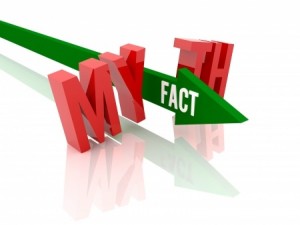 Fire sprinkler legislation has stirred up a bit of controversy around the country, with various parties taking sides on whether or not they should be required by law. Unfortunately, these types of debates often inspire the spread of untrue or misleading information. Here are a few myths to watch out for when you’re considering whether or not to invest in life-saving residential fire sprinklers.
Fire sprinkler legislation has stirred up a bit of controversy around the country, with various parties taking sides on whether or not they should be required by law. Unfortunately, these types of debates often inspire the spread of untrue or misleading information. Here are a few myths to watch out for when you’re considering whether or not to invest in life-saving residential fire sprinklers.
“If one sprinkler goes off, watch out, because they’ll all activate.” Thankfully, this is untrue. Sprinkler heads react to temperatures in each room individually. When one room becomes significantly hotter than the others do, it will trigger its own sprinklers, extinguishing the fire at the source before it triggers the others. It is very common for just one sprinkler to activate to take care of a fire, rather than the whole bunch. Yet another reason you not to believe everything you see in movies.
An activated sprinkler system, spraying water, will cause as much, or more, damage than the fire. Not true. As noted earlier, the whole point of having a sprinkler system is to put the fire out quickly. Rather than have firefighters come in with hoses and douse the place with tons of water, sprinklers target the specific area where the fire is. Wouldn’t you rather have a small spot in the building ruined by water damage instead of a whole floor (or worse) destroyed by fire? Yes, of course you would.
Sprinkler systems are expensive, to the point where it’s better to avoid them rather than “pay all that money.” Here’s the deal: for a home that’s under construction, a home sprinkler system is generally estimated to cost 1 to 1.5 percent of the total building price. Therefore, if the new build were $100,000, the sprinkler system would be $1000 to $1500—definitely worth the investment! For more on this, check out our last post.
Fire Tech Residential Sprinklers of Montgomery County, Maryland, installs fire sprinkler systems “engineered for excellence” for residences in Maryland, Virginia, and Washington, DC. Visit our website to contact us and learn more about how we can make your house a safer place for you and your family to live.
[msh_feedburner]